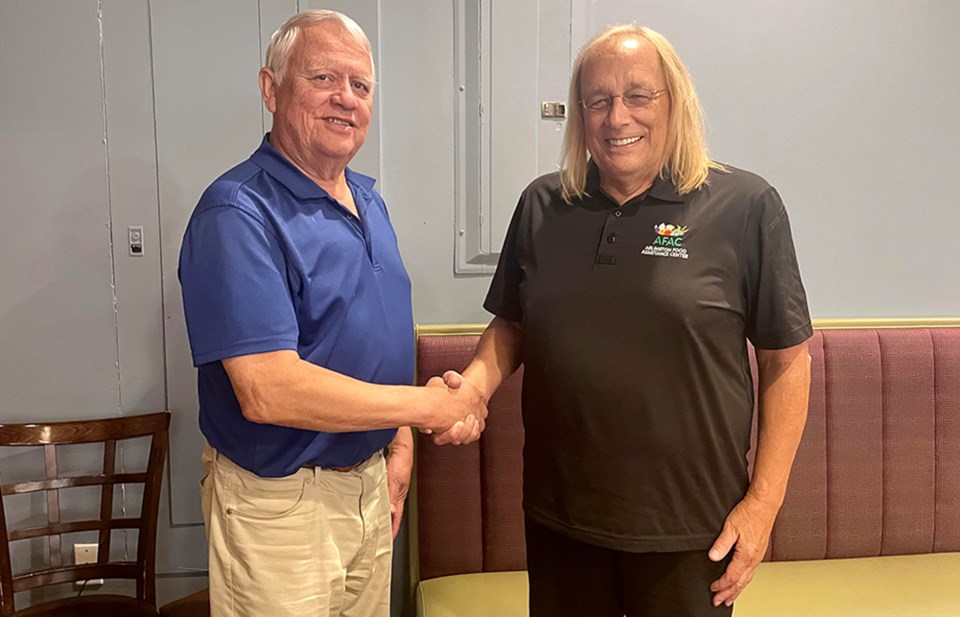Who’d have though that a global pandemic would have been the least of the challenges facing clients of the Arlington Food Assistance Center (AFAC)?
The safety-net organization, which for 35 years has provided supplemental food to individuals and families in the county, saw less of an uptick in need due to COVID than it did from the combination of inflation and post-pandemic cuts to federal-benefit programs.
“Those cuts have frankly have hurt our families far more than COVID ever did,” AFAC executive director Charlie Meng said during a July 20 presentation at the Kiwanis Club of South Arlington.
What had been a 2,700-per-week client base during COVID has risen to nearly 3,300 now, the highest ever. In the fiscal year ending in June, AFAC saw more than 140,000 visits for food, with nearly 6,300 families and just over 16,000 total individuals served.
So far, the organization – funded with some local-government support and a strong donor base – has managed to keep up with demand.
But it has not been easy, as only 40 percent of the food it receives for distribution is donated; the rest must be purchased on the open market. And while the retail cost of food has grown 14 percent since the start of 2022, the wholesale cost (which AFAC pays) is up more than twice that amount.
The upshot? Over the past fiscal year, AFAC had to spend a half-million dollars beyond its $1.3 million food budget.
That’s a track that can’t be sustained, but Meng says where there is the community will to provide assistance, a way can be found.
“We’re committed to never turning anyone away, never having a waitlist,” he said. “AFAC will be there for our families. We have been there for 35 years.”
The organization serves a number of types of clients, including those with disabilities and the elderly, but its largest single category is the working poor – those who are contributing members of the community but are finding it a challenge to make ends meet.
Those often become long-term clients, Meng said.
“If somebody is in need of food today, they will probably be in need of food tomorrow, next week, next month,” he said.
The organization is continuing its COVID-era home-delivery service, which takes food to about 150 clients who have no reasonable way to get to one of the organization’s distribution points. It also is, slowly, expanding services outside Arlington, including areas of Falls Church and Alexandria, in part to maintain services to those who have been priced out of Arlington’s housing options.
“Our families are slowly being forced out of the county,” Meng said.
Andres Tobar, president of the Kiwanis Club of South Arlington, said it is always good to receive an update from Meng.
“We really appreciate the job you’re doing,” he told Meng. “The needs are there.”



